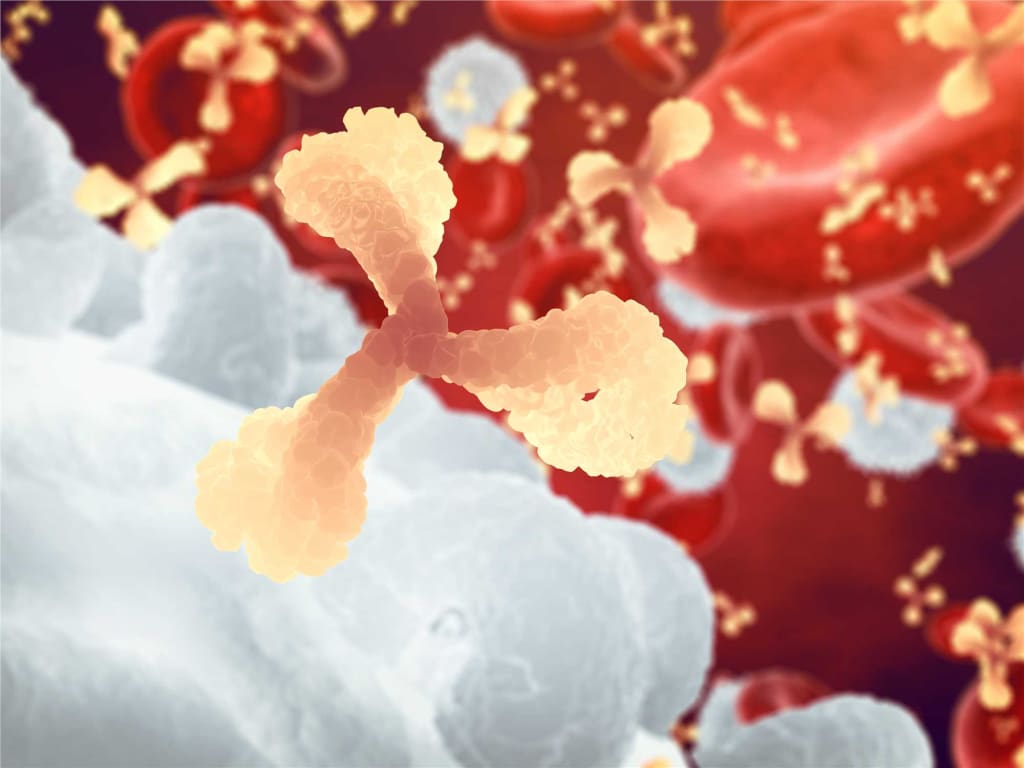The Causes, Diagnosis, and Treatment of Autoimmune Diseases
Overview of Autoimmune Diseases

It's acknowledged that the core of the immune system to defend our body from germs and other foreign invaders is the ability to tell the difference between self and non-self. However, immunoglobulins may occur in healthy individuals and mistakenly target and react with our own cells, tissues, or organs, leading to autoimmune disorders.
Introduction to Autoantibodies
Antibodies that specifically react with self-antigens and attack normal cells are called autoantibodies. They are produced by the immune system when it's unable to distinguish foreign substances and self cells (or other normal constituents), which brings about signals and symptoms of autoimmune diseases like dysfunction, inflammation, or damages in our bodies.
Occasionally, autoantibodies won't directly result in tissue injuries, but inflammation and damage are still considered to be related to overactive immune responses.
The Causes of Autoimmunity
The generation reason for autoimmune disease antibodies is not fully understood, especially in some cases, autoantibodies with remarkable specificity present before the disease onset. But in general, the causes of autoantibody production are involved with a genetic predisposition and environmental triggers, such as a viral illness and prolonged exposure to certain toxic chemicals.
Hormonal components might also be a factor, as women of childbearing age are more likely to have certain autoimmune conditions. It's recently claimed that more than 32 million people in the U.S. have autoantibodies, and the prevalence of the most common type of autoantibody, antinuclear antibody (ANA), is highest among women, older individuals, and African Americans.
Diagnosis
Autoimmune diseases that primarily affect a single organ are easier to diagnose and observe, for example, Hashimoto thyroiditis, in that usually the signs or symptoms of these disorders are directly related to that specific organ.
However, it's more difficult to diagnose autoimmune disorders caused by systemic autoantibodies, as multiple organs or systems would be affected. Common symptoms are arthritis-type joint pain, fatigue, fever, rashes, cold or allergy-type symptoms, weight loss, muscular weakness. Individuals suffering from more than one disorders will encounter more troubles in diagnosing.
Therefore, laboratory tests, symptom reviews, and physical examinations are often combined to evaluate patients with suspected autoimmune disorders. In addition imaging scans and biopsies, autoantibody tests also help diagnose autoimmune disorders. In general, the tests for diagnosis, prognosis, and severity evaluation can be divided into three types:
- Hematologic tests to measure the count of platelet and white blood cell, enzymes, and metabolites.
- Inflammatory marker tests to measure C-reactive protein, ferritin, ceruloplasmin, fibrinogen, etc.
- Autoantibody tests to measure rheumatoid factor, anti-cyclic citrullinated peptide antibody, anti-nuclear antibody, etc.
Autoantibodies show remarkable specificity and could serve as biomarkers providing an opportunity for diagnosis and therapeutic intervention. Biomarker development and validation have contributed to increasing the specificity of in vitro diagnostics (IVDs), including the discovery of protein-based biomarkers and serum microRNAs.
Treatment
Autoimmune disorders can't be cured, while treatments are available to deactivate immune responses, bring down inflammation, and reduce and ease pain, swelling, fatigue, skin rashes, etc. Anyhow, the diagnosis and treatment should be in conjunction with an individual's personal and medical history with distinct signs and symptoms. Patients with autoimmune disorders are always advised to have a well-balanced diet and regular exercise to feel better.
What are the most common autoimmune diseases?
- Of the 80-plus autoimmune disorders, the most common ones include:
- Addison’s disease – immune system attacks the adrenal gland, disrupting production of steroid hormones aldosterone and cortisol.
- Coeliac disease – autoimmune attack on substances found inside gluten damages the surface of the small bowel, disrupting the body’s ability to take in essential nutrients from food
- Graves’ disease – the small thyroid gland is attacked by the immune system, leading to an overproduction of the thyroid hormones (hyperthyroidism)
- Hashimoto’s thyroiditis or Hashimoto’s disease – similar to Graves’ disease, but this time damage to the thyroid gland lead to an underactive thyroid gland (hypothyroidism)
- Multiple sclerosis – myelin sheaths which protect the nerve fibres carrying messages to and from the brain are targeted by the immune system, causing behind scarring (known as sclerosis).
- Reactive arthritis – immune system is tricked into thinking a previous infection is still present and attacks healthy tissue, causing it to become inflamed.
- Rheumatoid arthritis – cells that line your joints are targeted by the autoimmune reaction, causing joints and surrounding tissues to become swollen, stiff and painful.
- Systemic lupus erythematosus (SLE) – immune system targets healthy tissue, causing inflammation of the skin and joints, and can affect internal organs
- Type 1 diabetes – immune system destroys cells within the pancreas that produce the blood sugar-regulating hormone insulin.





Comments
There are no comments for this story
Be the first to respond and start the conversation.